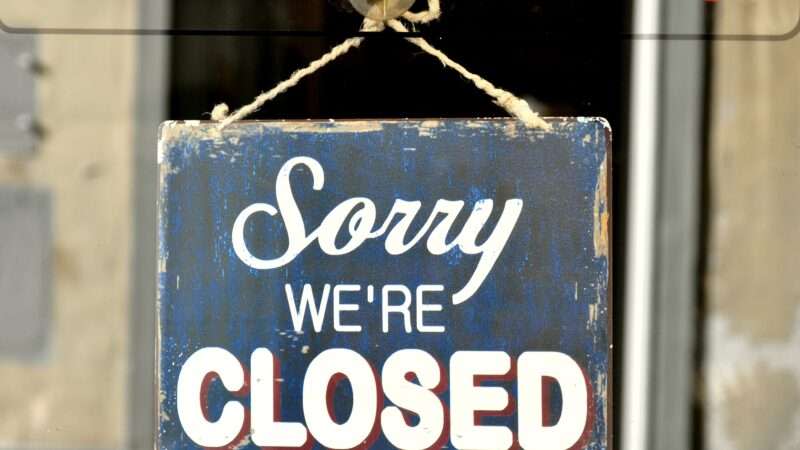San Francisco Bill Would Let People Sue Grocery Stores for Closing Too Quickly

- Oops!Something went wrong.Please try again later.
The San Francisco Board of Supervisors is considering a remarkable policy that would allow people to sue grocery stores that close too quickly.
Earlier this week, Supervisors Dean Preston and Aaron Peskin introduced an ordinance that, if passed, would require grocery stores to provide six months' written notice to the city before closing down.
Supermarket operators would also have to make "good faith" efforts to ensure the continued availability of groceries at their shuttered location, either through finding a successor store, helping residents form a grocery co-op, or any other plan they might work out by meeting with city and neighborhood residents.
Lest one thinks this is some heavy-handed City Hall intervention, the ordinance makes clear that owners still retain the ultimate power to close their store. It also creates a number of exemptions to the six-month notice requirement. If a store is closing because of a natural disaster or business circumstances that aren't "reasonably foreseeable," it doesn't have to provide the full six months' notice.
Still, should stores close without providing the proper notice, persons affected by the closure would be entitled to sue the closed store for damages.
Preston has been floating this ordinance since January when a Safeway in the city's Fillmore neighborhood announced it was closing before city officials intervened to keep it open a little longer. The policy itself is decades old.
In 1984, the board of supervisors passed an identical policy to what Preston and Peskin are proposing now, but it was vetoed by then-Mayor Dianne Feinstein. At the time, Feinstein described the policy as "an unnecessary intrusion of governmental regulatory authority."
Preston is more comfortable with the intrusion.
"It was a good idea then, and it's an even better idea now," he told the San Francisco Chronicle in January. "We need notice, we need transparency, community input, and a transition plan when major neighborhood grocery stores plan to shut their doors."
Grocery store executives argued back in the 1980s that layering a bunch of process on stores shutting down would make it less likely that they'd open in the first place.
The exemptions in the ordinance would seem to give supermarkets enough wiggle room to stay within the letter of the law, even if they didn't provide six months' advance notice that they were closing down. One wonders how much of a payout someone could expect from suing a store that's closed down.
Whatever the impact of this proposed policy, it does provide a telling insight into just how much micromanagement San Francisco politicians think their city needs.
One would think that grocery store owners would want to stay open as long as they were profitable and wouldn't close their businesses for frivolous reasons. Likewise, one would think that residents whose regular grocery store does close could pretty quickly figure out alternative places to find food. Competing grocery chains could make up their own minds on whether they could make a store work in place of another one that failed.
Preston and Peskin aren't as confident in San Franciscans' capacity for self-organization. Their ordinance is premised on the idea that change of any significance needs to be paired with an elongated public process and enforced with the threat of third-party lawsuits, lest people make their own decisions and do something too rash.
This is effectively how San Francisco already treats anyone's effort to start anything, be it a new business, a new technology, or a new home. That isn't a coincidence.
All that process and red tape on the front end makes it more difficult for businesses to start and more jarring when they close.
Still, if one has to get a million signoffs and permission slips to start doing something, is it really that much more ridiculous that the city would apply the same red tape to something shutting down?
The post San Francisco Bill Would Let People Sue Grocery Stores for Closing Too Quickly appeared first on Reason.com.

